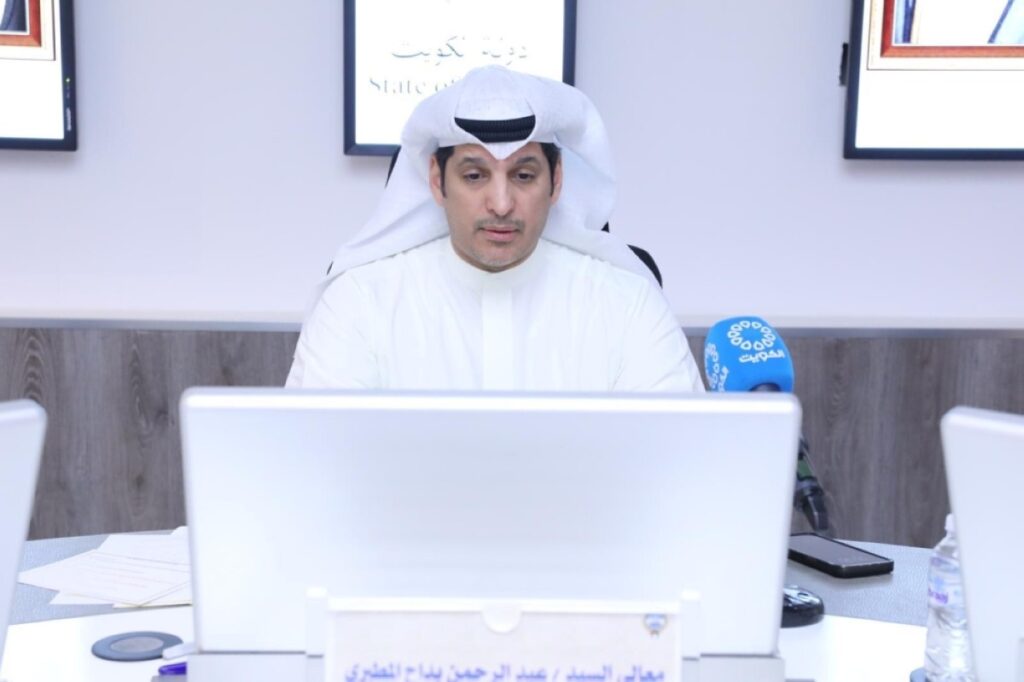Al-Mutairi: Gulf nations align on greener, smarter tourism strategy before UNWTO assembly
KUWAIT: Kuwait’s Minister of Information and Culture Abdulrahman Al-Mutairi on Thursday called for closer Gulf tourism cooperation, saying it could drive sustainable growth, diversify income and put the region firmly on the global tourism map.
Al-Mutairi made the remarks while chairing the joint meeting of tourism ministers from Gulf Cooperation Council (GCC) countries, held virtually. He said the gathering reflects “the great attention our wise leadership gives to the tourism sector as one of the pillars of economic and social development in GCC states, and as a bridge to deepen cultural and human communication between the peoples of the region and the world.”
In remarks published by KUNA, the minister conveyed the greetings and best wishes of His Highness the Amir Sheikh Meshal Al-Ahmad Al-Jaber Al-Sabah, His Highness the Crown Prince Sheikh Sabah Al-Khaled Al-Hamad Al-Sabah, and His Highness the Prime Minister Sheikh Ahmad Abdullah Al-Ahmad Al-Sabah for the meeting’s success “given its importance in enhancing joint Gulf cooperation and supporting our collective efforts in the tourism sector.”
“We believe that Gulf tourism integration is our way to maximize the benefits of shared resources, achieve sustainable growth, and diversify income sources — strengthening our region’s position on the global map,” he added.
Al-Mutairi thanked the United Arab Emirates for initiating the meeting “and its keenness to strengthen coordination among GCC countries ahead of the 26th session of the UN World Tourism Organization (UNWTO) General Assembly.” He said the effort “helps unify positions and enhance Gulf presence in this international forum.” The meeting is set to be held in Riyadh on November 7-11, 2025.
He also voiced Kuwait’s full support for the appointment of Sheikha Al-Nowais as UNWTO Secretary-General for 2026–2029, which was finalized in May 2025. “It reflects the remarkable standing and influential international presence of Gulf talents, and represents a qualitative addition to the region’s role in shaping the future of global tourism.” The minister praised Saudi Arabia’s efforts in hosting the 26th UNWTO General Assembly under the theme Al-Powered Tourism: Redefining the Future. “This is a pioneering achievement we are all proud of,” he said. “It marks a historic milestone for Gulf tourism diplomacy and showcases our region’s ability to organize and host major international events.” Al-Mutairi said he had full confidence in the Kingdom’s success in hosting the event “in a manner befitting its leading status.”
He expressed Kuwait’s support for the proposed “Riyadh Declaration on the Future of Tourism,” describing it as “an ambitious vision based on innovation, sustainability and the use of artificial intelligence — in line with our shared aspirations for a competitive and integrated Gulf tourism sector.”
The declaration, of which Kuwait Times has seen a copy, acknowledges that Artificial Intelligence marks a turning point in the history of tourism, redefining how people travel, how destinations evolve, and how communities thrive. It calls for tourism that protects the environment, uses new technology responsibly and supports local communities. It also stresses the need for training workers, spreading visitors more evenly across destinations, improving safety and services and helping small businesses benefit from tourism.
The minister further praised the GCC countries’ participation in Expo Osaka 2025, saying it “presented an impressive image of Gulf creativity through high-quality content that embodied our shared identity and showcased our region’s rich civilizational, cultural, and developmental potential.” He also wished Saudi Arabia success in hosting Expo Riyadh 2030, noting that it “reflects the world’s confidence in its leading position and ability to organize major global events, in line with its ambitious vision for a prosperous and sustainable future for the region and the world.”
The meeting discussed several topics related to developing the tourism sector in GCC states, enhancing its role as a key pillar of economic growth, and promoting cooperation and coordination among member states in international tourism forums. — Agencies

